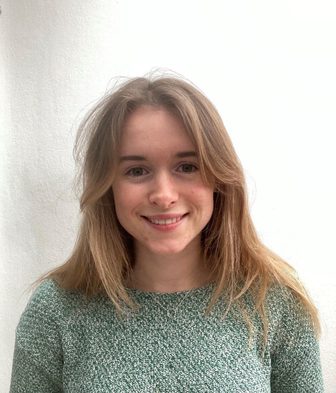Stefanie Bonfield, PhD student

Stefanie joined the Centre for Prevention, Detection and Diagnosis (CCSPED) as a PhD student in January 2022. Her project is exploring public preferences for cancer detection test modalities to improve equitable participation. She is supervised by Dr Samantha Quaife, Dr Evangelos Katsampouris, Professor Stephen Duffy and Professor Fiona Walter. Stefanie has a BSc in Psychology, MSc in Cognitive Decision Sciences and previously worked as a Behavioural Science Advisor on Covid-19 projects at Public Health England.
Last year I recruited people living in London to take part in interviews to ask them about their thoughts on cancer testing. Here are some reflections and lessons learned from going out into local communities to recruit people to take part in my study:
Get advice from PPI members and community champions first:
PPI members and community champions had a wealth of knowledge about how to respectfully and effectively invite people to take part in the study. Getting their advice early on was a crucial first step for planning how to recruit people to my interviews. Looking back, I think it would have been useful to get their advice throughout the recruitment process to troubleshoot the parts that weren’t working and explore other approaches.
Figure out ways to build lasting connections:
Visiting organisations in person and speaking to people face-to-face was really beneficial for learning more about the resources and opportunities available in the local community. I learnt a lot from attending local events and speaking to residents and stakeholders about their interests and work. Building on these connections and making this a two-way relationship is really important, whether that’s keeping people updated on the progress, sharing the findings or setting up further networking opportunities. The CCPSED PPI pool consistently makes outstanding contributions to the centre’s research. Additionally, recruiting participants from outside the pool for specific studies not only raises awareness of the pool, gaining new members and encourages long-term involvement in the centre’s research.
Incorporate as much flexibility as possible:
Everyone has different preferences for how they would like to hear about, be invited to and take part in research. Being as flexible as possible with our recruitment approach such as having paper, audio and online information materials, allowing people to get in touch with us by phone, post, social media or email and allowing them to take part in the research in a way that works for them (e.g. flexible times, online or in person at locations near to where they live) helped to meet everyone’s needs and make our research inclusive. On reflection, I wish I had prepared for this when applying for ethical approval for my study, instead of having to make changes to my plans further down the line.
Document and share challenges:
Sometimes no amount of preparing will prepare you for unexpected challenges that come up along the way. Having a supervisor or colleague to reflect and debrief with was really helpful when I was feeling low about the slow progress I was making. I think inviting and being open to feedback from community members is a great opportunity to improve recruitment and build resilience as a researcher. It’s important to keep track of successes and challenges for personal reflection and for sharing with others who can take the lessons learned forward with their own recruitment.
Reflections and Moving Forward:
Recruiting participants for research within local communities is a dynamic and evolving process that requires thoughtful planning, flexibility, and a commitment to relationship-building. By engaging PPI members and community champions early, fostering lasting connections, and remaining adaptable, we can create more inclusive and impactful research. While challenges are inevitable, they also provide valuable learning experiences that help us refine our approach and strengthen our research practices. I hope these reflections will be useful to others navigating similar recruitment journeys, and I look forward to continuing to learn from and collaborate with the communities we serve.
The views expressed are those of the author.
